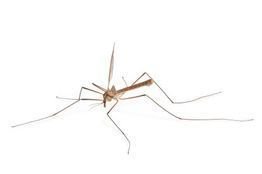Seattle BioMed develops malarial vaccine
17 September 2013 | News | By BioSpectrum Bureau

Researchers at Seattle BioMed develop a new kind of malarial vaccine, comprising of irradiated whole-parasite preparation
Singapore: Researchers at Seattle BioMed have developed a new kind of malarial vaccine, comprising of whole-parasite preparation, which is weakened by radiation. The scientists have genetically engineered malarial parasites, which are stunted through precise gene deletions also called as genetically attenuated parasites or GAP, and are using them as vaccines to protect against malaria infection.
This is the first time, researchers created a weakened version of the human malaria parasite by altering its DNA. They tested the safety of the new modified parasite by injecting six human volunteers through mosquito bites.
Five of the six volunteers showed no infection with the parasite, suggesting that the new genetic technique has potential as the basis for a malaria vaccine. Although clinical trials with this vaccine showed promising results, the method of vaccination was not optimal, requiring intravenous administration and multiple high doses.
Dr Stefan Kappe, lead author of the paper and professor at Seattle BioMed, said that, "Malaria is one of the world's biggest killers, and threatens 40 percent of the world's population, yet still no effective vaccine exists. In this paper we show that genetically engineered parasites are a promising, viable option for developing a malaria vaccine, and we are currently engineering the next generation of attenuated parasite strains with the aim to enter clinical studies soon."
Dr Kappe also said, "Our approach offers a new path to make a protective malaria vaccine that might overcome the limitations of previous development attempts. Genetically engineered parasites potentially provide us with a potent, scalable approach to malaria vaccination. Our results are very encouraging, providing a strong rationale for the further development of live-attenuated strains using genetic engineering."












